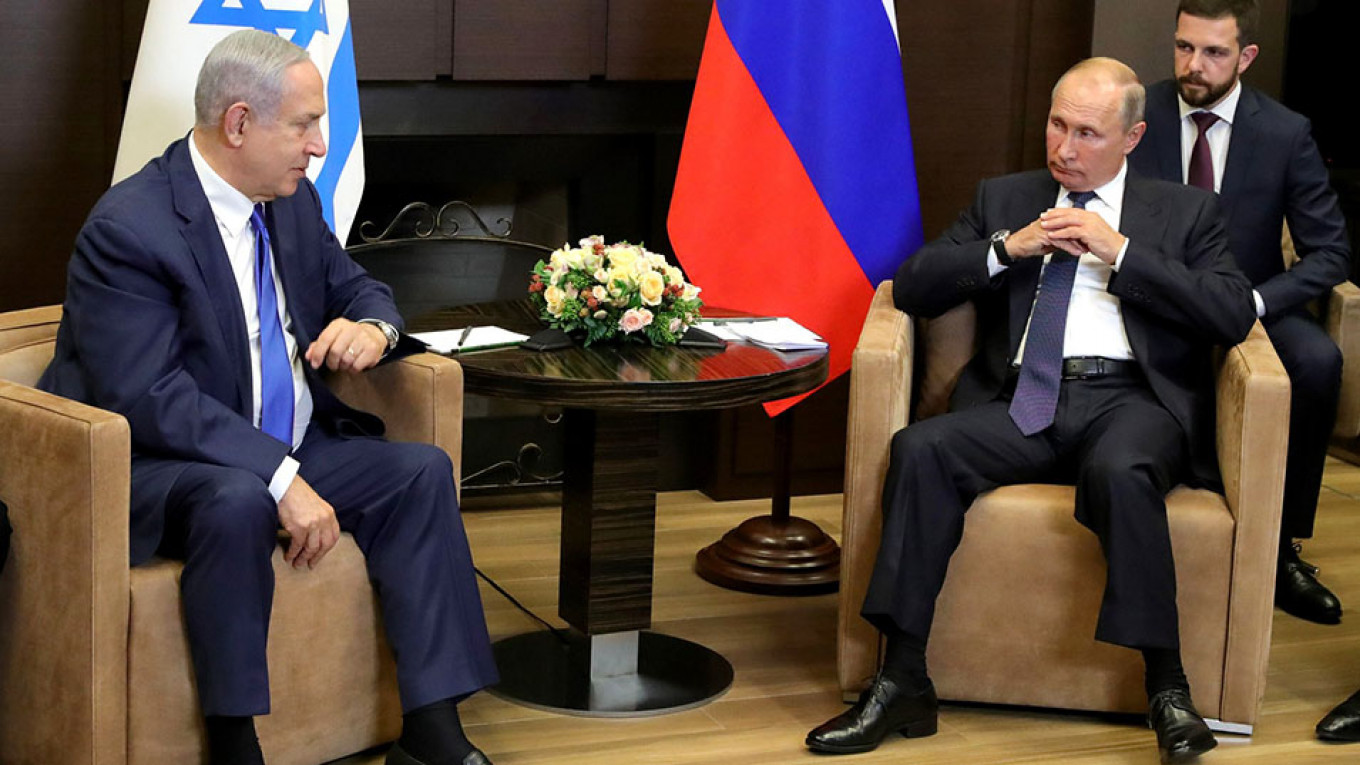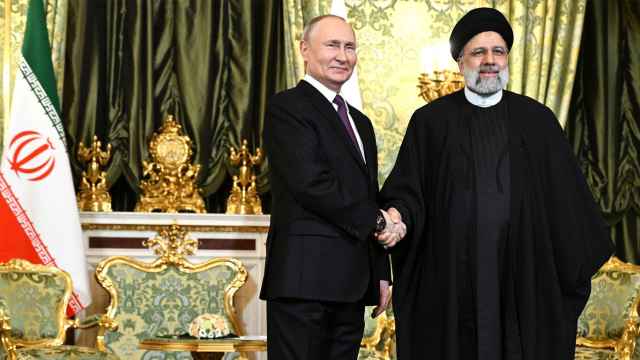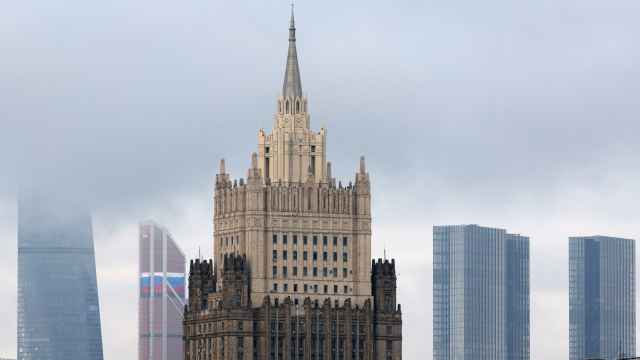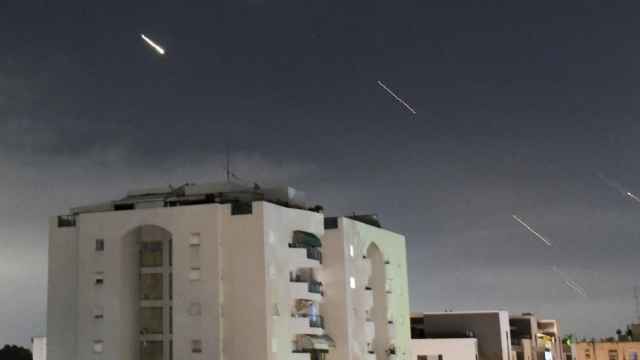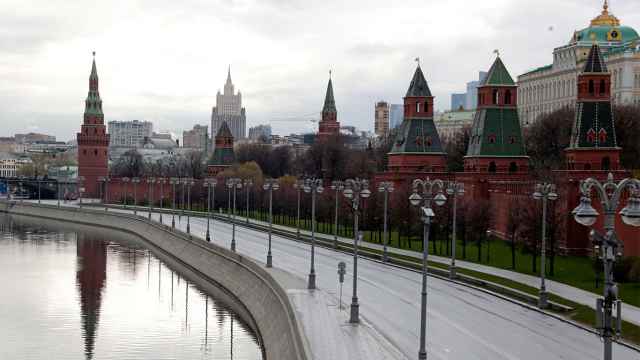Israel must be allowed to act freely against Iran, Prime Minister Benjamin Netanyahu said on Thursday during a visit to Sochi, where he met with Russian President Vladimir Putin to discuss security coordination in Syria.
The two leaders have met more than a dozen times in recent years and the countries' militaries have been working to avoid accidental clashes in Syria, where Israel says it has carried out hundreds of strikes against Iranian targets to stop Tehran establishing a permanent military presence there.
"Security coordination between us is always important, but it is especially important now, since in the past month there has been a serious increase in attempts by Iran to hit Israel from Syria and to place there precision missiles to use against us," Netanyahu said at the start of the meeting.
Iran and Iran-backed Lebanese militia Hezbollah have helped President Bashar al-Assad in the Syrian civil war. Russia, which is also aiding Assad, has largely turned a blind eye to the Israeli air strikes.
Russia's state-run RIA news agency said Putin praised military and security cooperation between Russia and Israel.
Following the talks, which lasted for several hours, Russian Foreign Minister Sergei Lavrov said both Russia and Israel agreed to boost dialogue between their militaries in regards to Syria, Interfax news agency reported.
The news agency, also citing the minister, said that Putin and Netanyahu both underlined the need to safeguard Syria's territorial integrity and sovereignty.
After an earlier meeting with Russian Defense Minister Sergei Shoigu, Netanyahu reiterated that for Israel to ensure its security, its military needed to have "freedom of action" against Iran in the region.
A Message from The Moscow Times:
Dear readers,
We are facing unprecedented challenges. Russia's Prosecutor General's Office has designated The Moscow Times as an "undesirable" organization, criminalizing our work and putting our staff at risk of prosecution. This follows our earlier unjust labeling as a "foreign agent."
These actions are direct attempts to silence independent journalism in Russia. The authorities claim our work "discredits the decisions of the Russian leadership." We see things differently: we strive to provide accurate, unbiased reporting on Russia.
We, the journalists of The Moscow Times, refuse to be silenced. But to continue our work, we need your help.
Your support, no matter how small, makes a world of difference. If you can, please support us monthly starting from just $2. It's quick to set up, and every contribution makes a significant impact.
By supporting The Moscow Times, you're defending open, independent journalism in the face of repression. Thank you for standing with us.
Remind me later.


